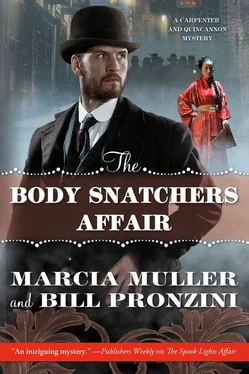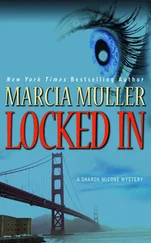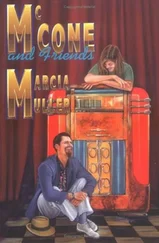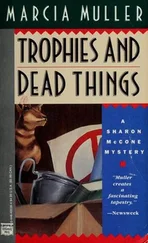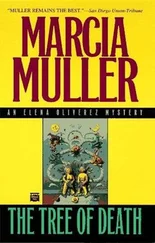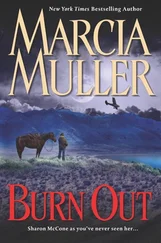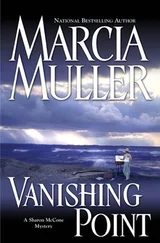Quincannon read the accompanying story as he walked, then the one in the Call . Both were about as he’d expected, more speculation than fact in linking Scarlett’s murder to the theft of Bing Ah Kee’s corpse four nights previous and the general state of unrest in the Quarter. On the positive side, his name was not mentioned and the writing was far more restrained than what was sure to appear in the afternoon rags. Homer Keeps, the Evening Bulletin’ s muckraking crime reporter, would be sure to use the death of a white man at the hands of a highbinder to stir up more virulent hatred of the Chinese among the populations of Tar Flat and the Barbary Coast, where such sentiments ran strongest. And if one of the less scrupulous coppers at the Hall of Justice leaked Quincannon’s name for a price, Keeps would gleefully insinuate that he was either directly or indirectly responsible.
The reporter had had it in for him since his days as a Secret Service operative and the tragic incident in Virginia City, Nevada, when a stray bullet from Quincannon’s pistol during a battle with a gang of counterfeiters had taken the life of an innocent woman bystander and her unborn child. As if his guilt hadn’t been crippling enough, Keeps and others of his ilk had made it worse by mercilessly condemning him in print. His subsequent plunge into drunkenness would have cost him his job if it hadn’t been for the charity of Mr. Boggs, head of the Service’s San Francisco field office, and perhaps then doomed him to permanent ruin. It was only after coincidentally meeting Sabina, while they were both working undercover on separate cases in Idaho, that he’d retaken command of his life and become the sober detective he was today. Keeps, however, had no forgiveness in his soul, and continued to hound him whenever the opportunity presented itself.
Sabina was already at her desk when he entered the offices of Carpenter and Quincannon, Professional Detective Services, a few minutes later. She invariably arrived earlier than he did, to tidy the office as well as to begin her daily activities. Much of the paperwork — reports, invoices, payment of bills — was her responsibility by choice. He was organized when it came to work on a specific case, disorganized where routine business matters were concerned. It was paperwork she was attending to this morning when he entered.
The look of her had two distinct effects on him. The first was an unpleasant feeling that his fears of the night before might be justified, for she seemed distracted, as if something were weighing on her mind — something to do with that fop Carson Montgomery. Had she succumbed to his advances and was having second thoughts about such a dalliance? Had he — God forbid — proposed to her in or out of bed and was she considering whether or not to accept?
The other, contradictory feeling was a surge of jealousy-fueled desire. Such an intelligent, skillful, and good-hearted woman. And such a desirable one, her glossy black hair piled high on her head and fastened with her favorite jeweled barrette, her ample bosom made even more prominent by the tight bodice of her shirtwaist. The two feelings combined to stoke the wicked side of his imagination, bring into his mind’s eye a slightly feverish image of that fine figure divested of its skirt and jacket, shirtwaist and lacy undergarments, submitting to the leering gaze of that society coxcomb Montgomery...
She narrowed her eyes at him as he shed his derby and Chesterfield and crossed to his desk. “Before we get down to business,” she said, “I’ll thank you to put my clothes back on.”
“Eh?” Sudden warmth crept out of Quincannon’s collar. “Sabina! Surely you don’t think that I—”
“I don’t think it, I know it. I know you, John Quincannon, far better than you think I do.”
He said defensively, “Perhaps, though you often mistake my motives.”
“I doubt that. Was your sleepless night the result of rewarding that lascivious mind of yours?”
“How did you know I spent a sleepless night—”
“Bloodshot eyes in saggy pouches. If I didn’t know better, I’d think you had forsaken your temperance pledge with whatever wench you were canoodling with.”
“I was not canoodling with anyone last night.” It was on the tip of Quincannon’s tongue to ask her the same question; he managed to bite it off just in time. He was not supposed to be aware that she was keeping company with the socially prominent Carson Montgomery. She hadn’t said a word to him about the man, of course, her steadfast position as always being that the details of her private life were not to be shared. If he were to ask pointed questions or to speak Montgomery’s name, it would cause immediate friction. And gain him no knowledge of the extent of their relationship. She would simply tell him to mind his own business and immediately change the subject.
No, the time had not yet come to let her know that he was aware of her attachment to Carson Montgomery. Might never come, if his jealous imaginings turned out to be unfounded. He consoled himself with the thought that he’d misinterpreted her distracted look, that something that had little or nothing to do with Montgomery was the cause of it. Still, the possibility that she had granted the confounded socialite her favors, or was about to do so, would continue to plague him until he found out the exact nature of their relationship.
And he would find out, not by resorting to spying but by judicious detective work when time permitted. Theodore Bonesall, the banker and former client from whom he’d learned of Sabina dining tête-à-tête with her new beau on at least two recent evenings, was only one of many well-placed acquaintances he could call on for the necessary information...
“What’s the matter, John?”
“Eh? Matter?”
“Your expression. You look as though you’re having a gastric attack.”
Gastric attack. Faugh! He couldn’t help a wry grimace as he said, “My innards are fine, thank you.”
“Well, I’m glad to hear it. If that expression is because I offended you with my canoodling remark, I apologize. It was inappropriate, given our agreement to limit our daily intercourse to professional matters only.”
The word “intercourse” caused him to grimace again, somewhat wistfully this time, though he managed to turn his head so that Sabina was not witness to it. He sighed inaudibly as he sat at his desk. Love, especially unrequited love, was not only a difficult proposition, it was a confounded nuisance.
He produced and began to charge his briar, preparatory to giving Sabina a full dramatic report of the previous night’s events. But just as he was about to speak, Mr. Alexander Graham Bell’s invention filled the office with a sudden clamoring.
Quincannon glowered at the telephone, which was closest to Sabina’s desk. She lifted the receiver in the middle of a second jangle. Static crackled audibly from the line, enough interference, judging from her end of the conversation, to make communication with the calling party, evidently a woman named Blankford or Branchford, difficult. He gave his attention to his small stack of morning mail. Checks were what he was looking for; bills and solicitations all that he found.
When the call ended, Sabina said, “It appears we have a new client, or at least the strong prospect of one. Mrs. Harriet Blanchford, Ruben Blanchford’s widow.”
“Ruben Blanchford? Ah!” Quincannon’s interest perked. “The financier. Made a fortune from the Comstock Lode along with Hearst, William Sharon, and Alvinza Hayward.”
“Yes, and spent his later years engaged in philanthropic enterprises. He died a few days ago of a heart ailment.”
“Worth several millions, as I recall.”
Читать дальше
